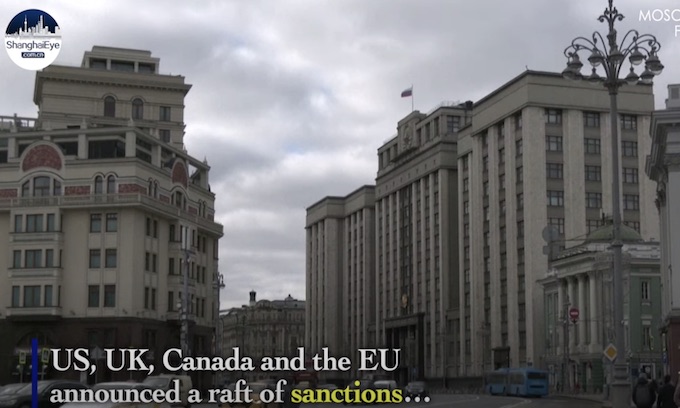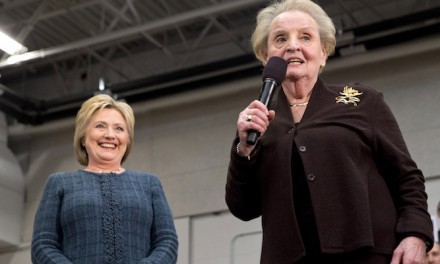Uneasy Russian citizens lined up at ATMs nationwide on Monday to pull their cash out of banks — as the ruble plummeted in value due to sanctions from the West and Moscow’s central bank hiked interest rates.
Many of the new sanctions, imposed over Russia’s invasion of Ukraine, kicked in on Monday and the Russian ruble sank in value by 30% compared to the U.S. dollar.
Later Monday, the Central Bank of Russia said that it would more than double key interest rates — to 20% — in a bid to strengthen the nosediving ruble.
“External conditions for the Russian economy have drastically changed,” the bank said in a statement. “The increase of the key rate will ensure a rise in deposit rates to levels needed to compensate for the increased depreciation and inflation risks. This is needed to support financial and price stability and protect the savings of citizens from depreciation.”
Before markets opened on Monday, Russia also announced that it would free almost $9 billion in bank reserves to boost liquidity and order domestic exporters to sell their foreign exchange revenues.
Though Russia amassed $630 billion in international reserves, 40% have been frozen as some banks were kicked off of the SWIFT financial communications network as punishment for invading Ukraine last Thursday.
Mandating companies to sell at least 80% of their foreign currency earnings on the domestic market will force them to buy rubles, generating a demand for the currency.
“The fact that the Russians cannot deploy a good part of this $600 billion worth of foreign currency reserves that the Russian central bank has been carefully building up does mean that we are onto an emergency war economy,” David Marsh, chairman of economic policy think tank OMFIF, told CNBC. “And the idea of isolating Russia, which just a few days ago would have been thought of as unthinkable, it now is a reality.”
Analysts say that the move could result in more than $1 billion to the market each day and take pressure off the central bank’s role in stabilizing the Russian economy.
Copyright 2022 United Press International, Inc. (UPI). Any reproduction, republication, redistribution and/or modification of any UPI content is expressly prohibited without UPI’s prior written consent.
—-
This content is published through a licensing agreement with Acquire Media using its NewsEdge technology.



















There is so much behind the scenes we do not know about this situation. Putin has stuck his ugly neck out a mile long with so very little possible gain in the long haul. That is to say unless he is being financed by something else (guess who) so that the obvious downsides to invading a sovereign country in 2022 becomes a viable adventure. Either this tu-d is completely insane (or stupid), or we don’t know much about the real deal that is going on right now.
You can bet, china’s got their fingers ALL Over this.